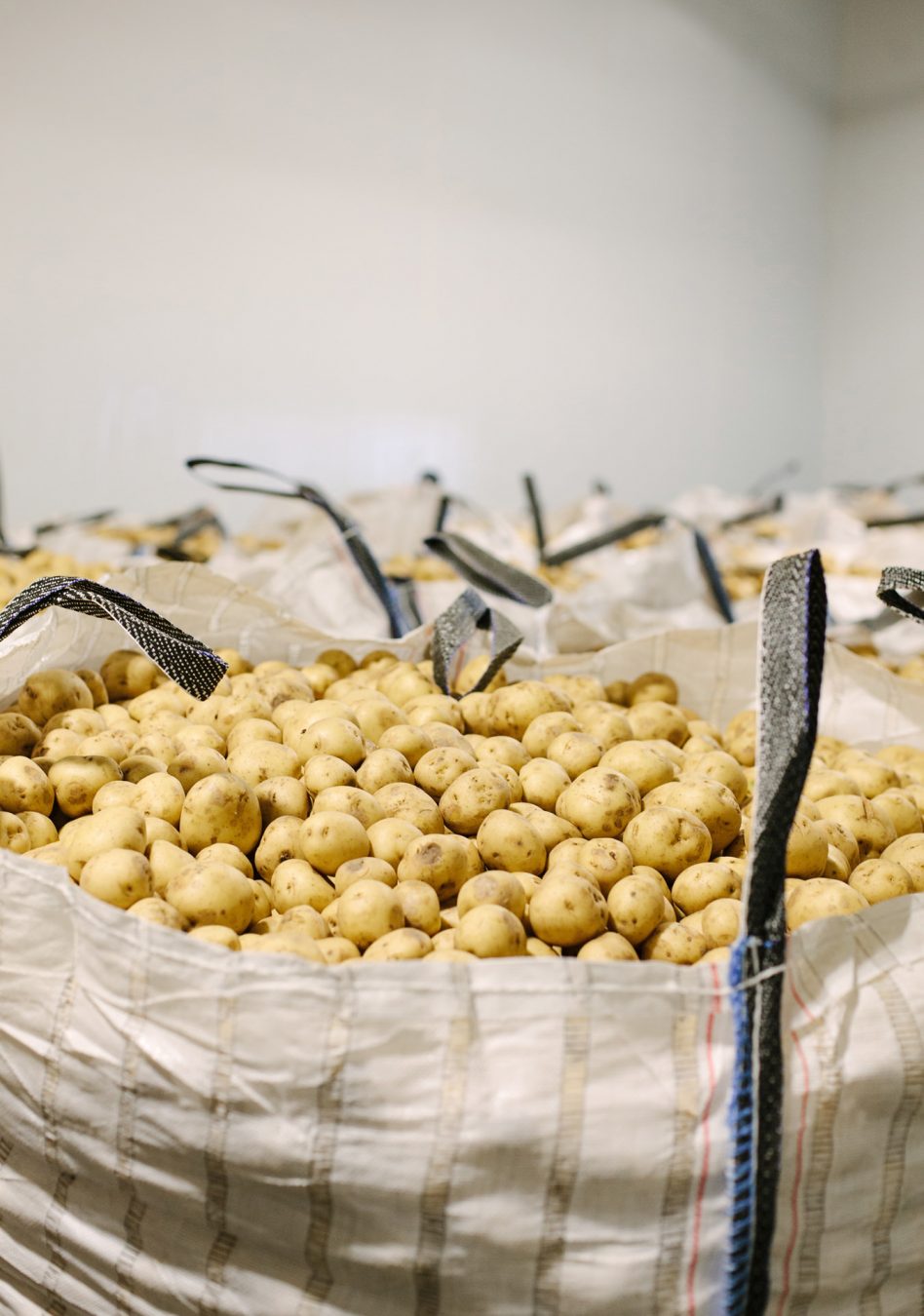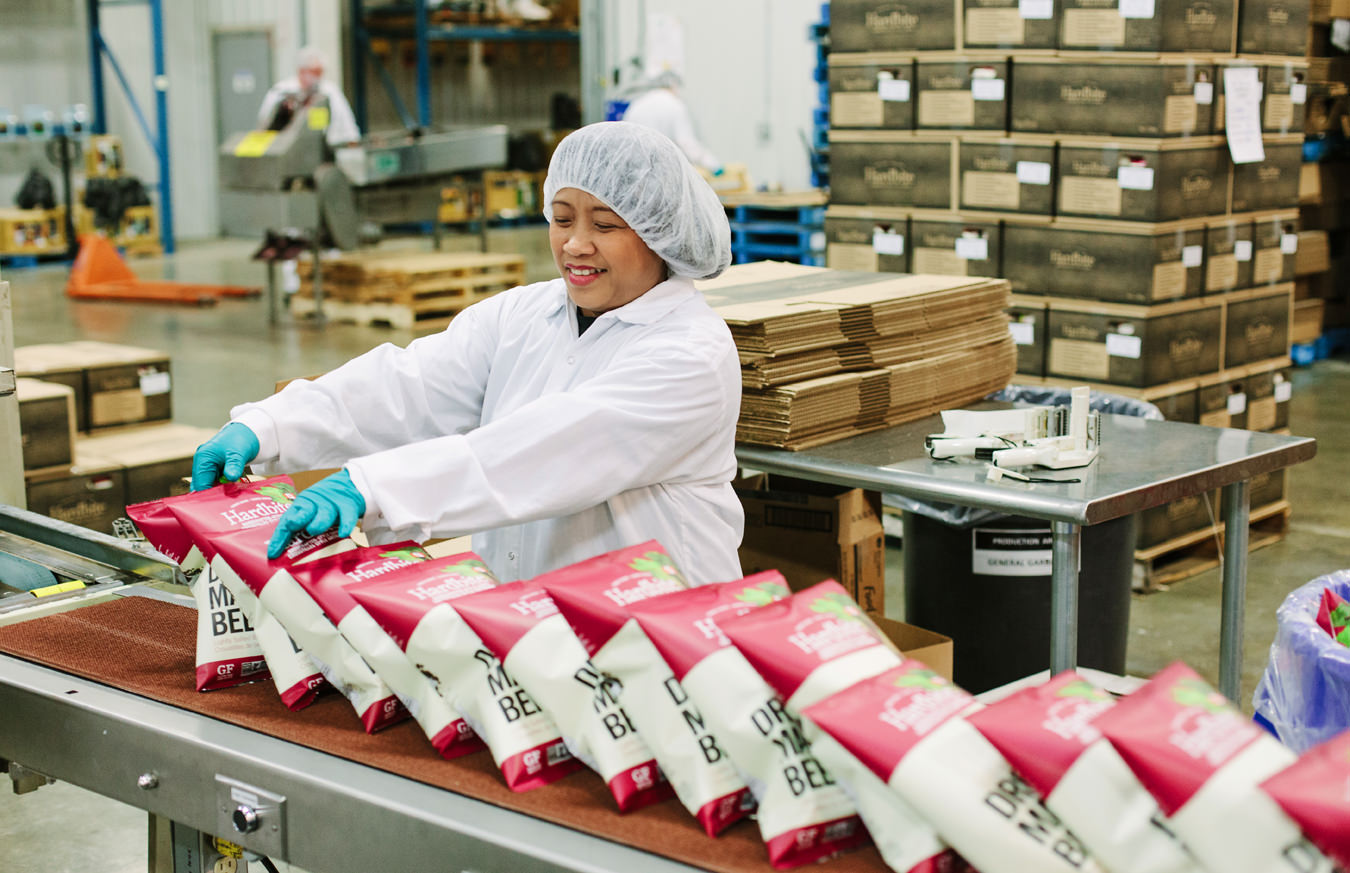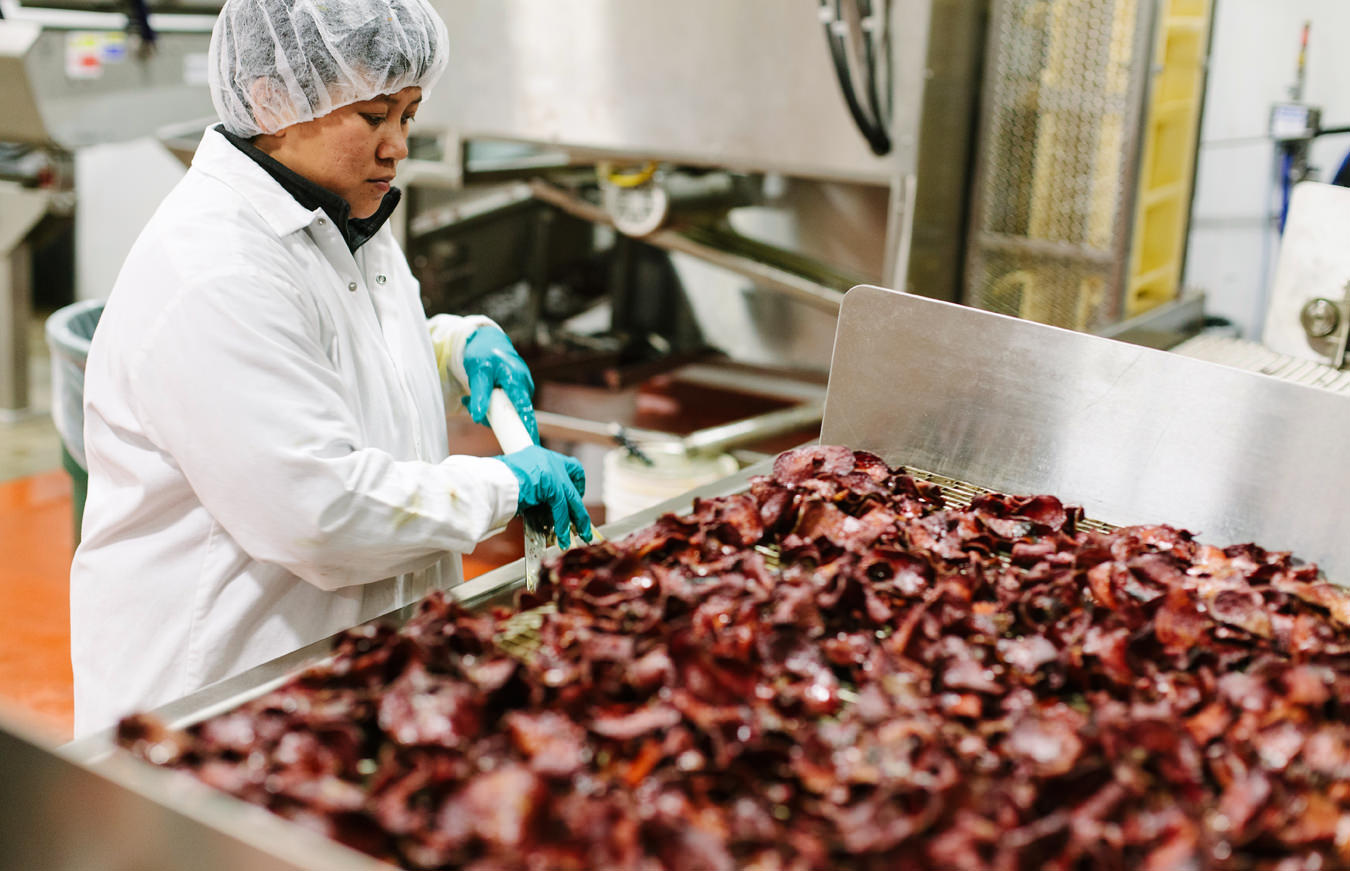Not all potato chips are created equal. A blind taste test could lead you to that inevitable conclusion, but no matter how many brands you might include in such a project, chances are Hardbite Potato Chips are going to come out on top.
This is no fluke. It starts at the source, as in the potato—in this case, the large, thin-skinned, Kennebec variety. It was born and bred in Maine in the 1940s, and grown to good effect here in British Columbia. As Hardbite president Kirk Homenick says, “the problem is not quality at all. We use non-GMO potatoes, so the issue is quantity. Sometimes it is hard to source enough potatoes to meet demand.” It is a good problem to have, in most respects, but Homenick goes on to say that “the local producers can’t supply enough, so we have had to expand our sourcing protocols.” The Kennebec is extremely popular in restaurants, since it is an ideal potato for making French fries, in addition to its suitability for great potato chips. So it is understandable that supply is an issue.
Hardbite was born in 1998, when two ex-Nalley’s employees founded Naturally Homegrown Foods. They started up a more boutique, gourmet chip company, went from success to success, expanding distribution (even into some of the larger grocery store chains), and sold the company in 2000. In 2011, a consortium comprising of four distinct groups, including one headed by fourth-generation potato farmer Pete Schouten, took over the reins. The company underwent rebranding, and Hardbite was reborn stronger than ever, well-situated in its niche, appealing to a crowd that embraces what Homenick describes as “an aspirational lifestyle”—people who really want to know that “they are getting the very best.”
The common denominator throughout? GMO-free, organic potatoes, sourced as locally as possible. Kennebecs are low in sugar, and on the dry side. From its new, larger Surrey production facility, Hardbite slices them, and cooks them at what the industry overall would consider a low temperature, for a slightly longer cooking time. When they come out of the roiling sunflower oil, they are inspected and hand-culled, eliminating any defects. “When you see a brown chip, that indicates too much sugar,” says Homenick, “and we want our chips, unadulterated, to be perfect.” Eight minutes cooking time per batch is ideal.
It takes one pound of raw potatoes to make one 150-gram bag of chips. The deep fryers are at full throttle for two shifts each of the five working days of the week. When they say the cooked chips are hand-culled, they really mean it: it takes a trained eye and a quick hand, but they maximize the goodness in each and every bag. There are various flavours available, and there are now carrot, beet, and sweet onion chips as well. Lightly sea-salted, these are the ne plus ultra of the potato chip world.
Hungry for more? Browse the rest of our Food and Drink section.











